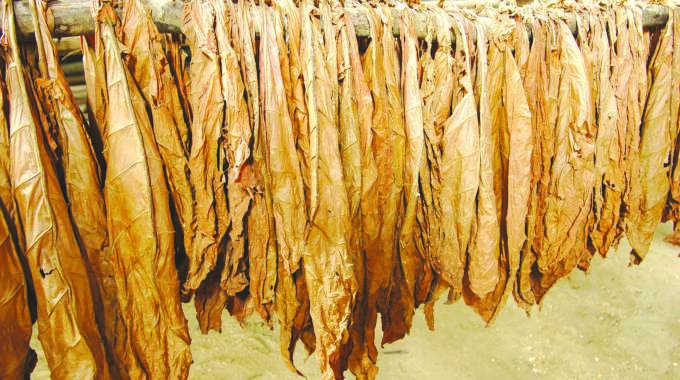
The Sunday Mail

Business Reporter
THREE tobacco merchants were recently suspended by the Tobacco Industry and Marketing Board (TIMB) for non-compliance with marketing regulations, a move that was considered a positive step towards restoring normalcy in the marketing of Zimbabwe’s second-largest foreign-currency earner.
The industry regulator suspended the companies – Munakiri Leaf Tobacco, Vision Leaf and Mbaluk Leaf – for buying tonnage above the maximum allowable in terms of the contract.
Excess tonnage is supposed to be sold at auction floors.
“On June 14, 2022, TIMB suspended operations of three contracting companies for violating Statutory Instrument 61 of 2004 (Exchange Control Tobacco Finance Order) Section 5, which states: ‘A contractor shall purchase so much of the value of the contract tobacco produced by a contract grower as is equivalent to the amount used by the contractor to finance the grower, and any balance remaining may be sold by the contract grower as auction tobacco’,” the TIMB said. “As a result of variances outside the regulations . . . the three have been stopped for this season.”
Munakiri Leaf Tobacco, for instance, financed tobacco to the tune of US$380 000 to support nearly 400 hectares.
However, by last Tuesday, the company had bought 1,72 million kg worth about US$4,8 million, according to the letter of suspension from TIMB. Industry players said strict enforcement would promote investor confidence and eliminate side-marketing.
“Contract farming is one of the tried and tested value chain financing models that has been sustaining our tobacco industry,” agriculture economist Dr Midway Bhunu said.
“Bringing sanity to the system is a noble development. We strongly recommend multi-stakeholder dialogue for a critical analysis of the issues from concerned parties, especially the contracting firms and the farmers. Key drivers of side-marketing are low productivity, low prices and poor pricing policies. Farmers behave that way to maximise their profits. I, therefore, recommend a holistic approach to the problem.”
Side-marketing takes place when a merchant buys tobacco it has not contracted or when a farmer chooses to sell to another merchant. What usually pushes farmers to side-market includes attempts to avoid repaying loans they would have obtained in the form of inputs. Nearly 95 percent of tobacco in Zimbabwe is financed by private merchants under various contract-farming schemes.
Dual marketing
While Zimbabwe used to pride itself for a vibrant auction marketing system, viability of tobacco farmers has, however, been seriously eroded as a result of the introduction of the dual marketing system now dominated by contract floors. There are more than 65 contract floors around the country, with the majority being makeshift facilities that present major transparency risks and are seen as compromising the efficiency of tobacco marketing. In recent years, many tobacco farmers have failed to recover their investments largely due to side-marketing.
Poor yields can also result in poor recoveries. In some areas, the recovery rate has been as low as 40 percent, according to some merchants.
“The idea of having many contractors is not a bad one as long as they comply with the laws,” Mr Carlos Tadya, a commodity analyst, said.
“Having many contractors gives farmers wider choices and this, in turn, forces merchants to give farmers better deals, but it becomes a disaster if compliance is not vigorously enforced.
“However, the multiplicity of contract firms has led to a lack of adequate regulatory enforcement and this has created a fertile ground for side-marketing. The decentralisation of the floors has also resulted in most of the tobacco being bought outside.
“As merchants get closer to farmers, the greater the propensity of side-marketing.”
Analysts maintain side-marketing presents a “huge challenge” to growth of an industry sustaining nearly 150 000 households. Effective enforcement is considered critical to curb the practice.
At the beginning of the tobacco marketing season, Government gazzetted regulations to punish players who violate marketing rules. Contractors and contracted growers involved in side-marketing are now liable to compensate three times the loss suffered by any affected tobacco merchant.
Merchants also have to adhere to minimum funding requirements.
The Zimbabwe Tobacco Association chief executive officer Mr Rodney Ambrose told The Sunday Mail Business that side-marketing was increasing risk for investors.
Suspension of errant merchants, he said, was a “very positive action by the TIMB”, adding that blacklisting growers found engaging in side-marketing would improve investor confidence, reduce risk and ensure better prices for growers. Tobacco contributes about 10 percent to gross domestic product (GDP) and is one of the top export commodities. Output has progressively increased to a record 252-million kgs in 2019.
The Government plans to increase production to 300-million kgs and encourage investment in value addition and beneficiation.



